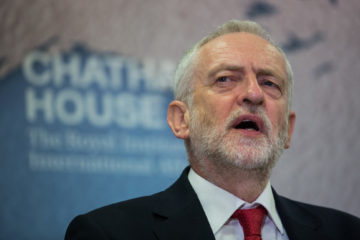While the revolutions that took place in early 2011 in the Middle East and North Africa present their own challenges for domestic political, economic and social reconstruction, the “Arab Spring” also prompts reconstruction of another sort- one that will need to take place in academic offices, lecture halls and on the pages of scholarly magazines. The uprisings in the Arab world present scholars with an opportunity to reconstruct and rejuvenate the core theories of International Relations (IR), as the events highlight that the dominant theories rely too much on state and organisation-centred explanations without being able to adequately incorporate less predictable, individual agency.
I was recently at a talk given by Carne Ross, founder of Independent Diplomat, a non-profit diplomatic advisory group that aims to provide marginalised political groups with the means to engage in diplomatic negotiations they would otherwise be excluded from. Independent Diplomat worked closely with the government of South Sudan prior to the referendum and continues to work with unrepresented, but crucial, agents in Western Sahara and Myanmar. As more and more conflicts concern intra-state, not inter-state, actors, Ross believes that by continuing to represent only governments and official state bodies during diplomatic negotiations, conflicts are more likely to be compounded, rather than resolved, by the failure to involve other key actors during discussions.
During Mr Ross’ talk, several questions were raised about the “Arab Spring”: Did these revolutions happen through governments? Were the uprisings affiliated with a key political group or ideology? Did they even have a leader or a figurehead? The answer to all of these questions is, of course, no. These movements were essentially leaderless and, while of course no two revolutions are the same, it is the organic, non-state-centric nature, which marks them as different.
Which is where IR, as it currently stands, runs into problems. Realism, the English School and other dominant theories cannot completely account for movements that do not follow state or other official, organization-based, lines. This does not mean that IR theory is “wrong”, but it does imply that it’s currently inadequate in explaining our world system. As the state and other official entities cease to have the same monopoly of power, IR has to start integrating agents and actors that can’t be directly accounted for. Otherwise, any mandate for pre-empting international events that the subject feels it has will be lost.
This is not to say that Realism and other dominant theories of IR are irrelevant. They are obviously key to many areas of study, but practitioners of IR find it notoriously difficult to compute random events, relying heavily on defined state actors and organisations, without being able to account for events that don’t adhere to established theoretical views. The impact of Constructivism, which does focus on individual agency to a greater extent, may be growing, but IR has to start being able to quantify these theoretical grey areas, such as the revolutions we’ve seen this year in the Middle East and North Africa, to stay relevant in the future.
Hopefully, the “Arab Spring” will be a tipping point in IR discourse and will provoke a considerable reappraisal of what is now relevant to the world system, instead of continuing to focus on what the field finds it easiest to categorise and is most used to.
Image Source: BBC


